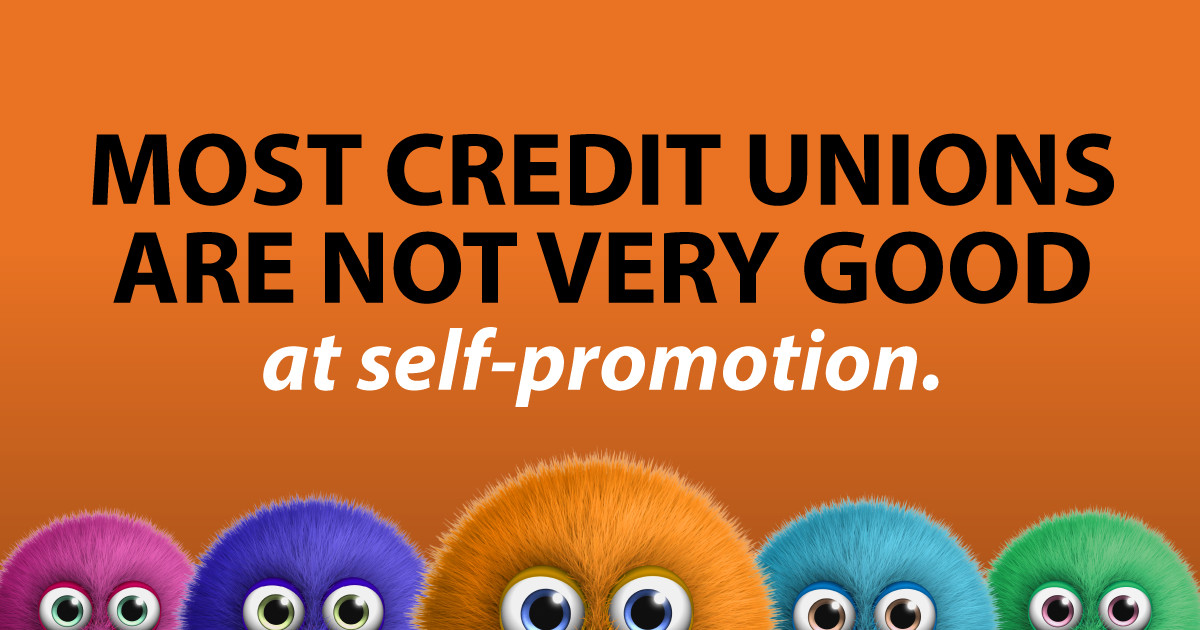
How to “do the right thing” without bragging
Credit unions are the perfect example of people banding together to solve a problem, and accomplishing more through cooperation. Since their beginnings in mid-1800s Europe, credit unions have embraced the values of “honesty, openness, social responsibility and caring for others.” Today’s credit unions continue to “give back” to their communities everyday – which is a quality that we think should make credit unions everyone’s “go-to” financial institution (instead of their competition.)
That is, if everyone knew about it. Because most credit unions are not very good at self-promotion.
CUs tend to worry too much about seeming to be “self-serving” and “patting themselves on the back.” Especially in an era where critics are quick to claim someone is “humblebragging,” or “virtue signaling.” And heaven forbid if you are called “woke,” engaged in “performative activism” such as “rainbow washing.”
But sticking up for the little guy is built into credit unions’ DNA.
So how do you “do the right thing” by actually helping people that need help, and connect with those that share your beliefs? How do you attract people that share your convictions to rally around the cause?
How do you even get started, much less start talking about it?
Don’t capitalize on a cultural moment. When emotions are high, trolls come out in greater numbers. Pick a purpose that will resonate with your members and your staff for a long time.
Make it unique and local. Credit unions are inherently local, so your causes and passions must be local as well. Of course, there’s nothing wrong with coordinating with or helping larger national causes, but you always have to make sure there’s a local twist and a local impact, so that your members can feel and envision the impacts in their own neighborhoods, and get on board themselves.
Make sure it’s authentic and personal. Whatever your cause, it has to be genuine. It has to come from a place of someone’s (or many someones’) lived personal experience, triumphs, and passions. That personal connection is an important part of the story that ensures others will get on board, and make sure a cause can carry on and keep changing lives for many years.
Don’t condition your charity. No “for every $ spent, we’ll donate…” That will definitely be seen as self-serving.
Establish a track record first. Think long-term and be consistent. Build a history with results before talking about it. Those who learn about it will spread the word first, reinforcing your story when you do start to talk about it.
It’s more about what you do, not what you say. It’s also more important to bring attention to the issue than to yourself. Once you start sharing with the world, don’t keep reminding people of how nice you are to be doing what you are doing.
Be accountable. Track and share the results and the impacts, focusing on how you’re making lives better for real people, right here. Focus on practical, everyday impacts, not vague “raising awareness” goals.
Use feedback for continuous improvement. The most important feedback by far is from the people who are impacted and helped through your cause. There’s no such thing as “set it and forget it” when you’re talking about a passion project and changing lives and communities for the better.
Not everyone will be happy with what you do. And that’s okay. If a cause is somewhat controversial but you truly want to support it, you have to accept that you might make some people angry. Stay authentic and don’t flip-flop.
Share the warm fuzzies. Whenever you can, take pictures, have fun, and get stories and feedback from the people impacted (while respecting privacy, of course). Make sure members know they’re part of what’s making this happen.
After all, doing the right thing is the right thing to do.
- Are you scared yet? - October 22, 2024
- OMG! Who really IS our competition?!? - September 24, 2024
- Do 5-star ratings really mean anything? - August 27, 2024
